|
0 Comments
In my view, the following article by George Monbiot shows he is up there with Turnburg, Attenborough, Packham and many others. He never tires of telling people the truth and working against Earth's collapse. It is for Friends of the Earth and all groups and individuals to rally in support if we are going to exit this tunnel.
Norman Pasley One of the problems we face in persuading people to love and protect the living world is the language in which this love is expressed. Few of the terms we use vividly describe either the planet we are trying to defend or the threats it faces. Take “the environment”: a cold, abstract and distancing term that creates no pictures in the mind. Have you ever seen an “environment”? Or “climate change”, such a mild and neutral term to describe an existential catastrophe. It’s like calling an invading army “unexpected visitors”. I’ve been pressing for more effective language for a long time, and I was delighted when, in 2019, the Guardian started changing the way it talks about our crisis, using terms such as “living planet” or “natural world” instead of “the environment”, replacing “climate change” with “climate breakdown”. I’m even happier to see how the Guardian’s shift has triggered a wider change. But there is one term in particular that still niggles. It might seem an odd one to contest, because it’s pretty graphic: mass extinction. It is used to describe the catastrophic events (there have so far been five since animals with hard body parts evolved) that wiped out many of the planet’s lifeforms. We are now in the midst of the sixth of these events. So what’s my problem? Well, I think the term reflects what palaeontologists call “taphonomic bias”: a mistaken view of the past caused by what happens, or doesn’t happen, to be preserved. We call these events “mass extinctions” because it is easy to see the disappearance of large numbers of species from the fossil record. The rocks also reveal the deeper issue, but this is less immediately visible. Mass extinction, horrendous as it is, is one outcome of something even bigger: Earth systems collapse. This, I feel, is what we should call the thing we are facing. We are in the midst of the sixth Earth systems collapse. In other words, human activities are not causing a biodiversity crisis, or a climate crisis, or a freshwater crisis, or a forests crisis, or a soils crisis, or an oceans crisis. We are creating an everything-crisis. While compartmentalising this omni-crisis helps us to study it and report on it, nature recognises no such boxes. All these systems are intimately connected and mutually dependent. There are no hard boundaries between them. If one fails, it threatens to bring down the rest. That is what happened in the previous five Earth systems collapses. We need, as much as we are able, to understand the whole. Our omni-crisis is also a political and economic crisis. It is driven, above all, by a few immensely powerful oligarchs and corporations: the pollutocrats. It is a crisis of power: the power they wield over us and over Earth systems; their ability to block the progressive change we need; to ensure that business as usual, which has granted them their power, is sustained. This is an existential crisis for them too. As the signs of gathering collapse become ever less deniable, their industries – fossil fuels, meat production, cars, roads, planes, mining, logging, fishing - are exposed to public scrutiny as never before. So they must fight harder than ever before. They are pouring money into politics, funding and directing political parties, demanding ever more draconian laws against protesters, paying lobby groups (so-called thinktanks) to publish misleading claims, and funding troll farms to flood social media. The billionaire media, representing the same interests, crank out ever wilder misinformation about even the mildest policies (net zero, low emissions zones, 15-minute cities) which might help to arrest the slide towards destruction. Their strategies are omnicidal. Our survival now depends on defending and expanding islands of resistance: places from which we can explain and debate the Earth systems crisis we face. The Guardian is one of these islands. By refusing to succumb to the pollutocrats’ full-spectrum assault on people and the planet, by investigating the strategies they use and the power they wield, by holding the governments they have captured to account, and by doggedly seeking to tell the truth about the crises we face, it develops some of the tools required to fight back. Nothing here is easy. Time is short, the powers arrayed against us are great. But we know that, just as ecosystems have tipping points, so do social systems, and history shows that these often turn out to be much closer than we imagine. The quest now is to reach the social tipping points before the ecological ones. George Monbiot Guardian Columnist The Guardian Fairtrade Fortnight 2023’s theme focussed on how the climate crisis endangers the future of some of the planet’s most beloved food products (bananas, chocolate and coffee) and the livelihoods of the farmers and agricultural workers who grow them. Unseasonal and unpredictable weather, storms, floods, droughts and increased plant diseases are making it hard for farmers to continue farming. Many low-income farmers do not have the resources to invest in recovery and adaptation. Many are leaving farming and their children are seeking alternatives. Fairtrade Certification offers farmers hope: a guaranteed minimum price allows them to earn a living income; an additional Premium Payment which they can choose to spend on improving their businesses, their communities and their environment. Training programmes which advise on sustainable farming methods, tree planting and soil improvement are resulting in higher and better-quality yields and healthy plants more resilient to diseases. Farmers can see a future with Fairtrade. This short (5 minutes) video about banana farmers in Colombia illustrates how Fairtrade is helping them: https://www.youtube.com/watch?v=K_bBWAgKWBg And in this one a coffee farmer in Kenya explains how climate change is affecting his vegetable crops: https://www.youtube.com/watch?v=_rR0YqhDmIw Fairtrade Ambassador, and cocoa farmer, Deborah Osei-Mensah, said to world leaders at COP 27: “If cocoa is not profitable for farmers, they will look elsewhere to source the income they need. They’ll move to industrialisation – they might sell their land to mines, to manufacturers. But once they are getting fair prices, farmers will protect their farm. Farmers use the Fairtrade Premium to contribute to their communities. If they feel they are being supported, they can invest in the future of food security.” Gosport Fairtrade Action campaigners, including Sarah Hirom, who is also a member of GFFOE, highlighted these issues during Fairtrade Fortnight at a Fairtrade tea party, hosted by the Mayor, for local environmental activists including GFFOE’s Lesley Goddard. GFA also had displays in the Discovery Centre, the Town Hall and Elson Community Library and Hub where they talked to the Sewing Group and the Senior Moments Coffee Morning (with coffee and chocolate tasting) about Fairtrade and endangered products. A key message is that whatever your budget and wherever you shop, when you choose Fairtrade, you support farmers to care for the environment through the Fairtrade Price, Premium and Programmes.
Sarah Hirom, GFA Co-ordinator, said: “We can all play a part. The future survival of the world’s most popular foods – such as bananas, cocoa, and coffee – depends upon the achievement of inclusive and equitable climate solutions. Farmers, who did little to cause the climate crisis, in all fairness, need help to address the consequences. We need to encourage our Government to support them, through the Loss and Damage Fund agreed internationally last year and helpful trade agreements.”. The last word to goes to Deborah Osei Mensah: “I want every one of us to be more conscious of the products we buy. Together, let’s make the future fair. Let’s buy more Fairtrade. Let’s advocate for producers across the globe to make sure we have a fair future for each and everyone.” 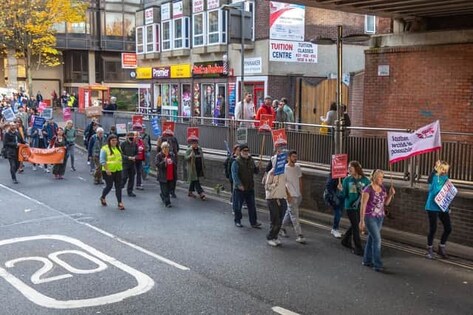 As part of the response to the COP 27 event in Egypt, groups around the world, including the UK, met to hold a Climate March on Saturday 12th November. Portsmouth was our nearest city and I decided to take part. This was my first Climate March and it was something I had wanted to do for a long time but, despite asking like-minded friends and members of various Eco groups, I have never managed to have someone to accompany me and I was not feeling brave enough to go on my own! However, since joining the Gosport and Fareham Friends of the Earth, and in particular the Trees and Bees group, I have met a great group of committed people who have made me welcome and who were also going to the March. I plucked up the courage and arranged to join them there. On the way I met people I knew from the Hampshire and Isle of Wight Wildlife Trust, so I already felt in good company. As this was my first march I was unsure what to expect. To be honest I had anticipated that there would be more people in Guildhall Square but nevertheless it was encouraging to see the passion and commitment of those attending. It was also good to hear a range of speakers and especially people from Sudan and Bangladesh, who are suffering at first hand the worst effects of climate change and yet have done the least to contribute towards it. Once the first speeches were finished we then marched from Guildhall Square up to the Commercial Road precinct and back again. I confess that I felt nervous walking through the busy shopping area as I wasn’t sure what reaction we would get from the shoppers, but it was nevertheless uplifting to be part of a group of environmentalists who want to see a change for the better, to save our planet from its current path of destruction. Once we returned to the Square there were more speeches and a sterling performance on the Guildhall steps by the GFFoE group, who put on a King Canute play to emphasise climate change issues and its challenges, exacerbated by the attitudes of leaders and industrialists. It can be easy to become disheartened by the inaction of the world’s Governments in the face of so much scientific evidence about the harm that we are causing to the earth. As individuals we can often feel powerless. By taking part in the march I felt that I was doing something practical to voice my concerns. Seeing the number of people and groups who feel the same way and are battling to keep these issues on the political agenda was encouraging. If you have not been on a march before I encourage you to give it a go! The more of us who can show that we care the better. Elaine Johnson 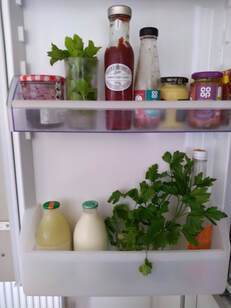 Of course, the most important way to reduce food waste is meal planning and portion control. When you make a recipe the first time, you might find its enough for 1.5 meals for your household - so make a note on the recipe - then you have some choices:
My newest trick, thanks Meg - see photo - is to help keep shop bought herbs for far longer in my fridge. I fill a glass with water, put the herb stalks in the water (as if they are cut flowers) and then store in one of the fridge-door shelves. They last so much longer. (FYI placing them on the top shelf of the fridge, near the light, brings a quick death to the herbs). Much food comes with too much packaging - so consider buying ingredients from https://ecofreaksuk.com/?v=79cba1185463 in Lee on the Solent. Take along your empty jars + lids, they weight them, you refill and then they calculate the cost. Eco freak's sister shop is the trash cafe in Gosport - they make sure food from supermarkets, which would otherwise go to landfill - is eaten up. https://trashcafe.com/?page_id=1024 They also deliver hampers, much recommended by some GFFOE members. For Fareham residents there are https://www.fareham.gov.uk/leisure/community_pantries.aspx Gosport Shop – Trash Cafe 49a Stoke Road, Gosport, PO121LS – ( Not a Cafe) open for shopping. Mon, Tue, Thur & Friday – 10-12am. Wednesday 5-7pm. Saturday 10:30am-1pm. Sunday 10:30-12:30 trashcafe.com Eco Freaks Emporium – Zero-Waste Store
Coconutty Soapnut Shampoo Bar ( 90G ) £ 6.00 Organic Cotton Wool Balls £ 2.30; Organic Aduki Beans £ 0.01 per g/ 75p per 100g; Friendly Soap Tea Tree & Turmeric Soap Bar £ 3.00; Organic Mulberries £ 0.01 per g/ £1.48 per 100g; Mr Organic | Dairy Free Lasagne Sauce | 1 x 350ml £ 2.90; MAKE YOUR OWN CANDLE KIT – MIMOSA & MANDARIN £ 16.99; VEGAN Salted Caramel Fudge (100g) by Fudgin ... ecofreaksuk.com Energy and Climate Intelligence Unit reports that New Government statistics on UK energy trends in quarter 1 of 2022 show that the shortfall in gas generation is being filled by cheaper renewables, namely wind and solar, which have increased their share of electricity generation on the same quarter last year.
|
Please
The views expressed in these articles are those of the authors and may not reflect the views of Gosport and Fareham Friends of the Earth. Archives
March 2024
Category |

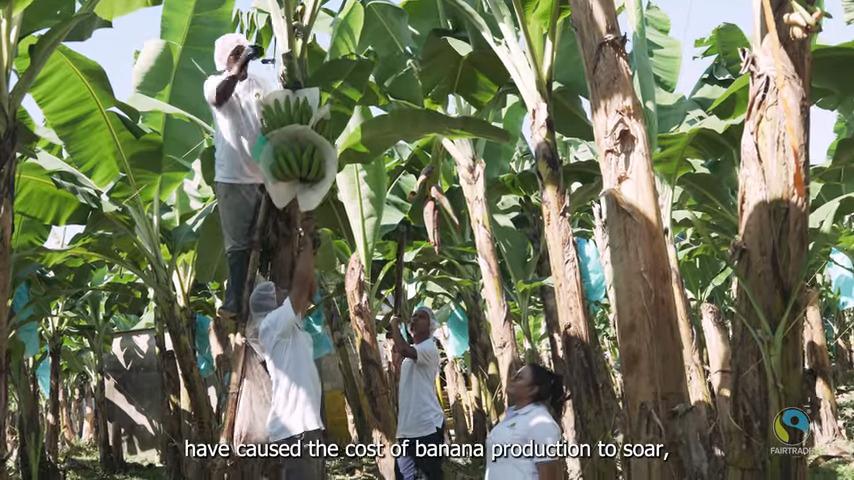
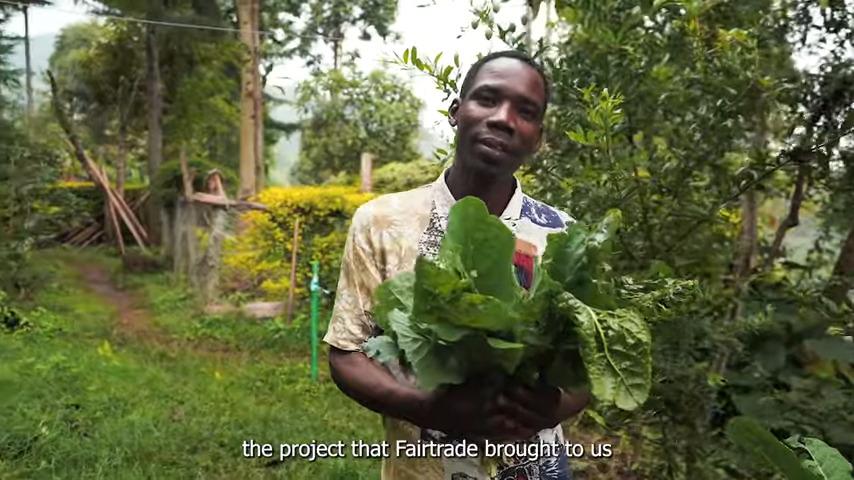
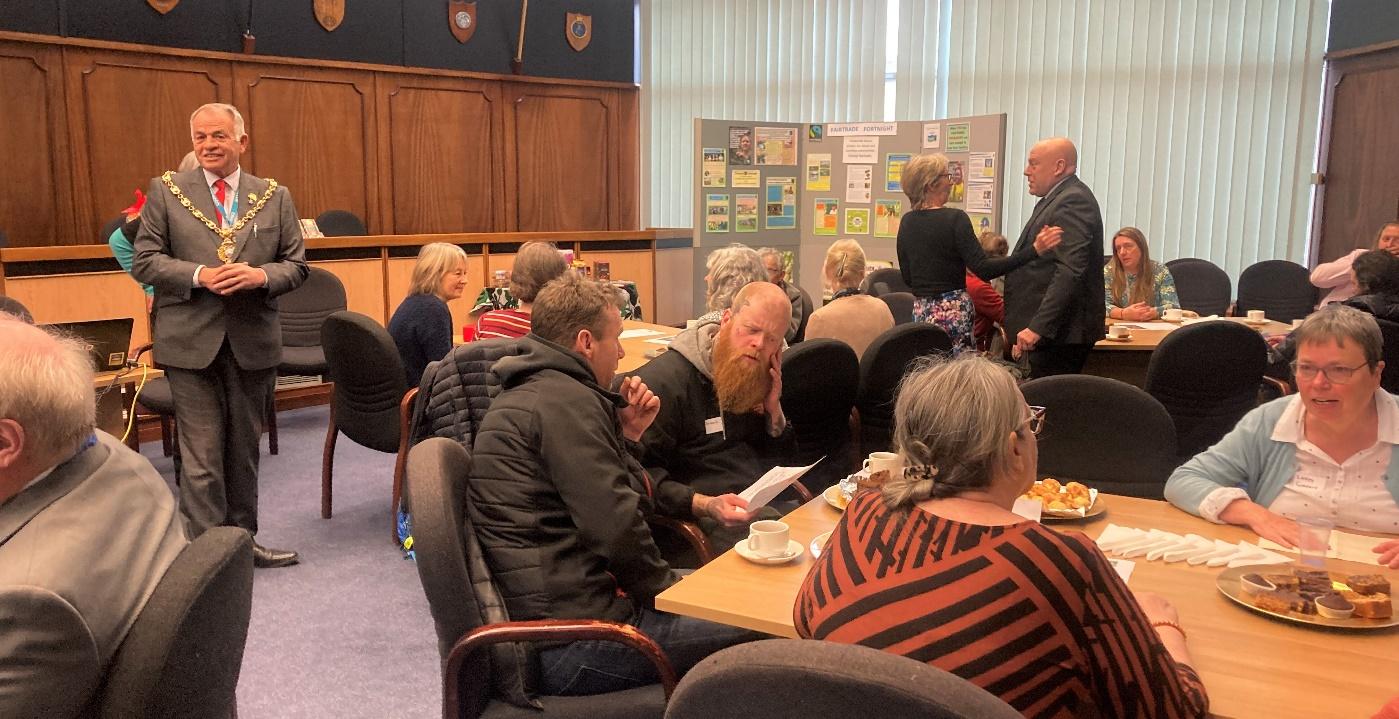
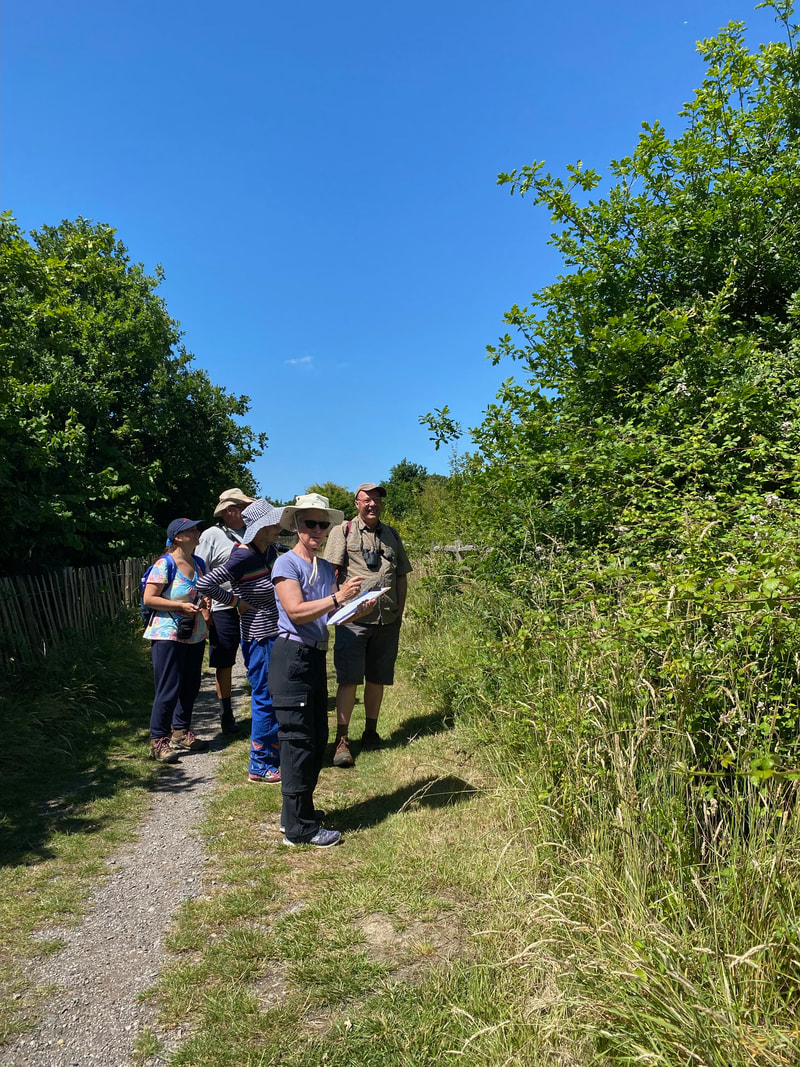
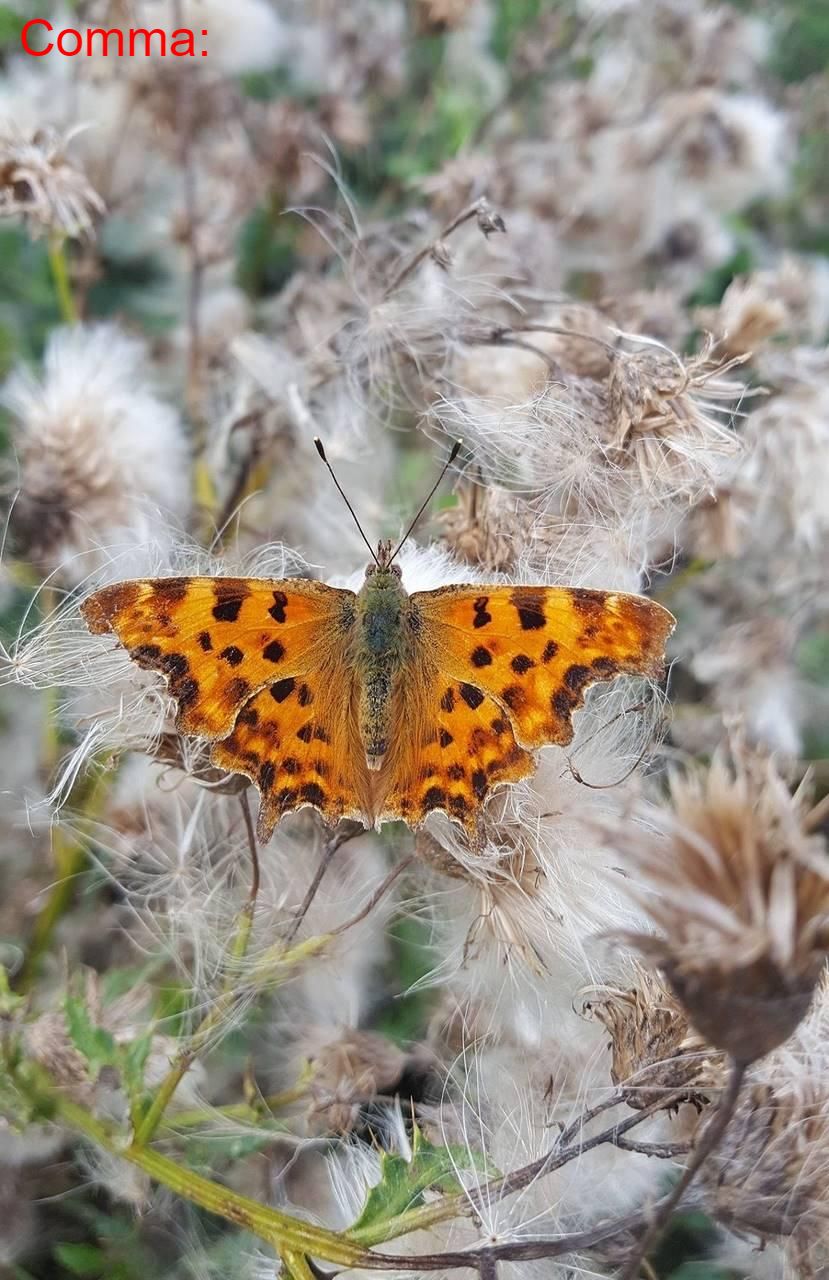
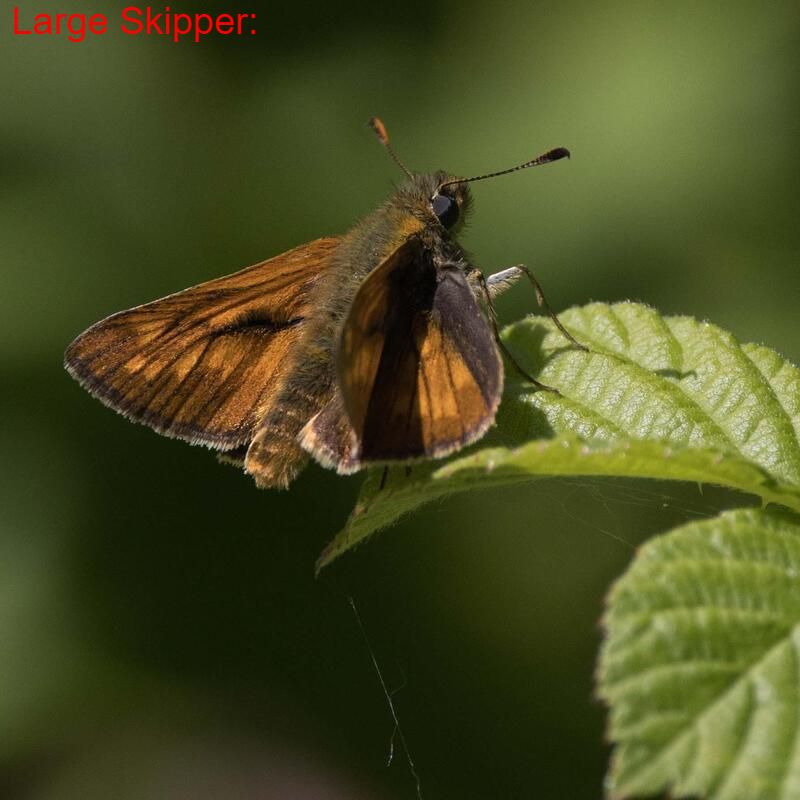
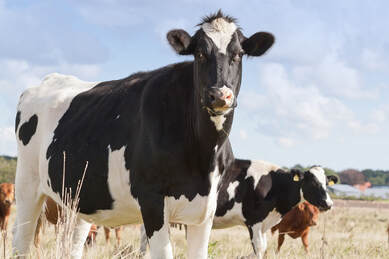
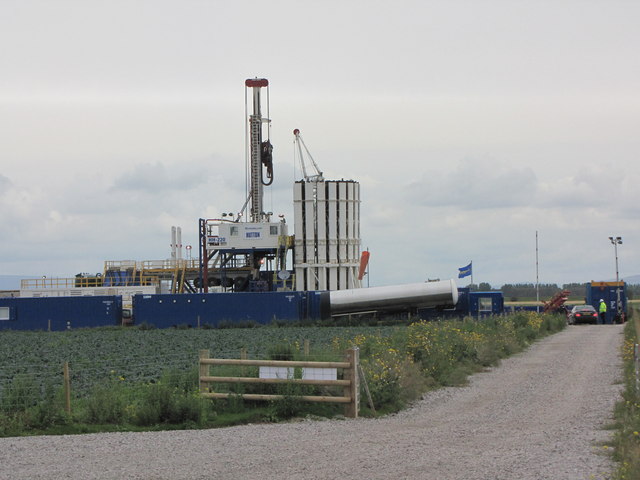
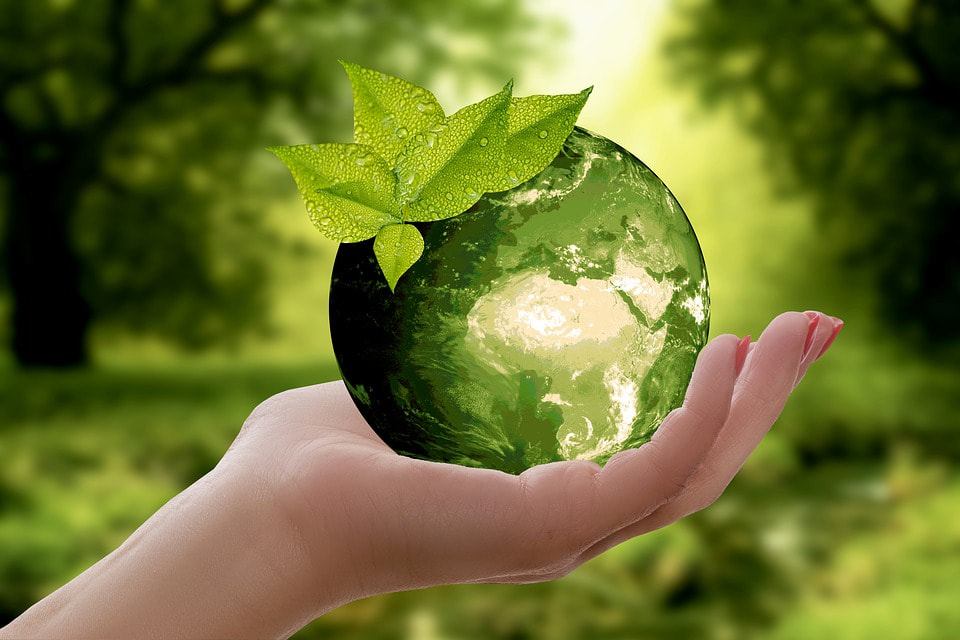
 RSS Feed
RSS Feed